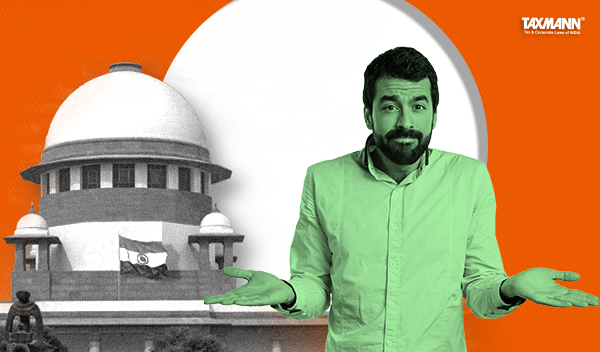[Opinion] ‘PE or No PE? – An Analysis From Hon’ble Delhi HC’s Lens
- News|Blog|Income Tax|
- 3 Min Read
- By Taxmann
- |
- Last Updated on 15 February, 2025

CA Pradhumn Daftri – [2025] 171 taxmann.com 299 (Article)
In the space of International taxation, the question of determining Permanent Establishment (‘PE’) has always been at the center stage and continually evolving by judicial wisdom and in this series, recently two judgements by Hon’ble Delhi High Court in the case of Progress Rail Locomotive Inc v. Dy. CIT International Taxation [2024] 163 taxmann.com 52/466 ITR 76 and Pr. CIT v. Samsung Electronics Co. Ltd. [2025] 170 taxmann.com 417 (Delhi) provides important guidance for PE determination, especially in the case of Holding-subsidiary relationship, which is subject matter for lot of debate and further complicates the issue of PE determination, owing to parent company’s unique position as shareholder of subsidiary and participation in its normal management contribution, its interest in and capacity to influence the business results of the subsidiary owing to the capital contribution and investment made by it in the subsidiary entity.
One more special reason for the importance of decision by Hon’ble High Court in Progress Rail Locomotive Inc. case (supra) is for the fact that not every day, that we get an opportunity to see Hon’ble Courts going into the detailed factual analysis and for the rare occasions when we get to see such cases and understand the wisdom of Hon’ble Judges, the same undisputedly deserves special attention.
For the convenience of readers and to do justice to both the judgements by having a detailed analysis, the discussion has been divided into two separate articles – Progress Rail (the present and the first part) and the Samsung Electronics (subsequent and second part).
In this two-part series, an attempt has been made to critically analyze, the issues and the facts involved in both the judgements and how the court has ruled and negated the allegations by the tax authorities.
- Before going into the facts of the case, as noted above, it is interesting to first look at briefly observe as why the case of Progress Rail has not travelled all the rungs of litigation to reach the gates of High Court, rather writ petition was directly filed before the High Court challenging the reassessment proceedings and notice issued u/s 148 by the Noida AO, which poses a question as to what prompted the Taxpayer to directly knock the doors of High Court and why even the High Court entertained the petition at such preliminary stage!
- Well, the answer is little complicated here as it was claimed by the assessee that the registered office of the Company is in New Delhi and therefore notice by the Noida AO is without jurisdiction and thereafter, the Tax authorities, exercising their powers u/s 120, transferred the jurisdiction of the assessee from New Delhi AO to Noida AO and this was process of transferring jurisdiction was initiated by Delhi AO, which was also duly approved by the CIT, Delhi. After extensive debate around the transfer of jurisdiction and CBDT’s circulars on powers of CIT/ACIT/DCIT to further delegate their powers, the court concluded that the Noida AO will only have authority to assess the assessee, if it has come to a conclusion that it has a PE within the territory assigned to it and it is the foundational link which joins the assumption of jurisdiction by the Noida AO and issue of PE in the state of Uttar Pradesh and thus, the very foundation of reassessment proceedings rests upon correctness of view on PE taken by Noida AO, which eventually prompted the Court to go into the facts and analyze, whether a PE (in Noida) exists or not.
Click Here To Read The Full Article
Disclaimer: The content/information published on the website is only for general information of the user and shall not be construed as legal advice. While the Taxmann has exercised reasonable efforts to ensure the veracity of information/content published, Taxmann shall be under no liability in any manner whatsoever for incorrect information, if any.

Taxmann Publications has a dedicated in-house Research & Editorial Team. This team consists of a team of Chartered Accountants, Company Secretaries, and Lawyers. This team works under the guidance and supervision of editor-in-chief Mr Rakesh Bhargava.
The Research and Editorial Team is responsible for developing reliable and accurate content for the readers. The team follows the six-sigma approach to achieve the benchmark of zero error in its publications and research platforms. The team ensures that the following publication guidelines are thoroughly followed while developing the content:
- The statutory material is obtained only from the authorized and reliable sources
- All the latest developments in the judicial and legislative fields are covered
- Prepare the analytical write-ups on current, controversial, and important issues to help the readers to understand the concept and its implications
- Every content published by Taxmann is complete, accurate and lucid
- All evidence-based statements are supported with proper reference to Section, Circular No., Notification No. or citations
- The golden rules of grammar, style and consistency are thoroughly followed
- Font and size that’s easy to read and remain consistent across all imprint and digital publications are applied



 CA | CS | CMA
CA | CS | CMA
